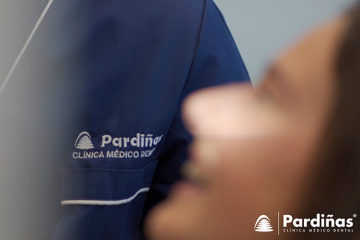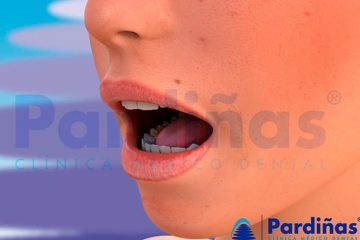Although the enamel that covers the tooth crown is one of the hardest and most resistant materials in the body, it can break and crack. Furthermore, enamel does not contain any living tissue inside it, so, unlike bones, it cannot regenerate on its own. For this reason, cracked tooth and dental fissures are a common problem in humans. Here we explain its causes and possible treatments.
What parts does a tooth have?
Teeth are structures formed by the crown and the root. The crown is the visible part in the mouth and its structure is made up of enamel (the most external and resistant part), dentin (tissue under the enamel) and the pulp or nerve. The root is within the jawbone and is made up of cementum (rather than enamel), dentin, and pulp.

What is a dental fissure and a chipped tooth?
Dental fissure is a cracking in the tooth where there is no detachment of the tooth structure. On the other hand, in a dental fracture there is a detachment that can be obliquely of the root, of the crown extending the fracture line below the gum, of the crown with the fracture line above the gum, from the root apex vertically, from the crown vertically extending to the roots, and from the crown horizontally. Fractures or fissures can endanger the survival of the tooth depending on where they occur.
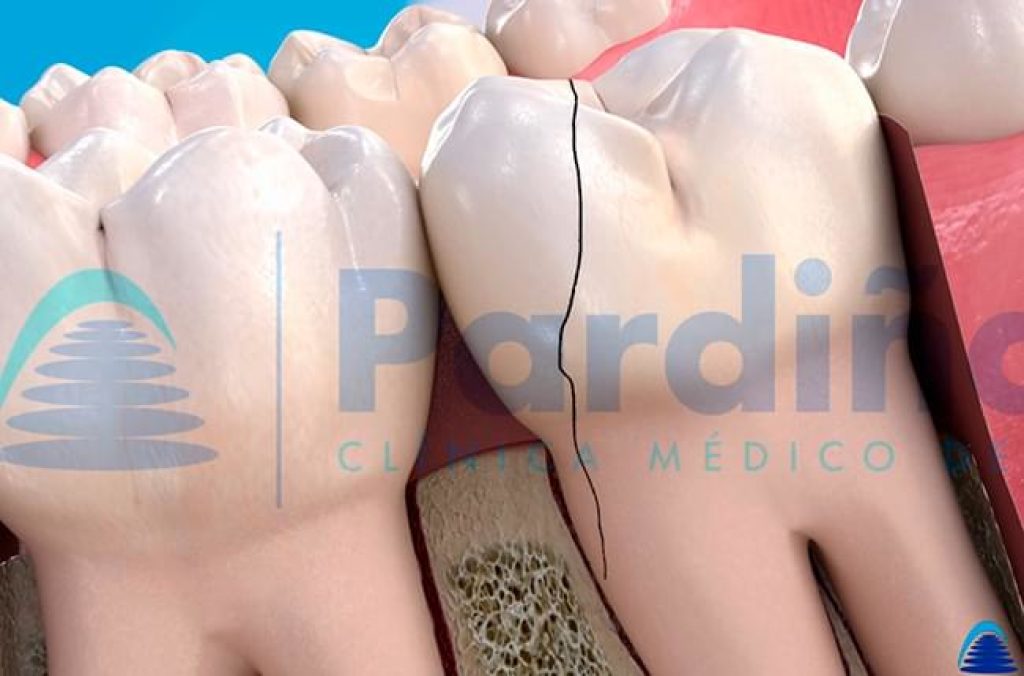
Why can a tooth be cracked or broken?
The causes of fractures and fissures are usually due to a specific trauma (a trauma or biting hard things) or continued (for example in bruxist patients). Untreated tooth decay can also lead to tooth breakage.

What are the symptoms of a dental fissure?
In many cases, the fissures are microscopic and can go unnoticed with the naked eye or on X-rays. Usually the fissure does not break the affected tooth, which appears healthy, but causes severe pain when eating or drinking cold things and when chewing.
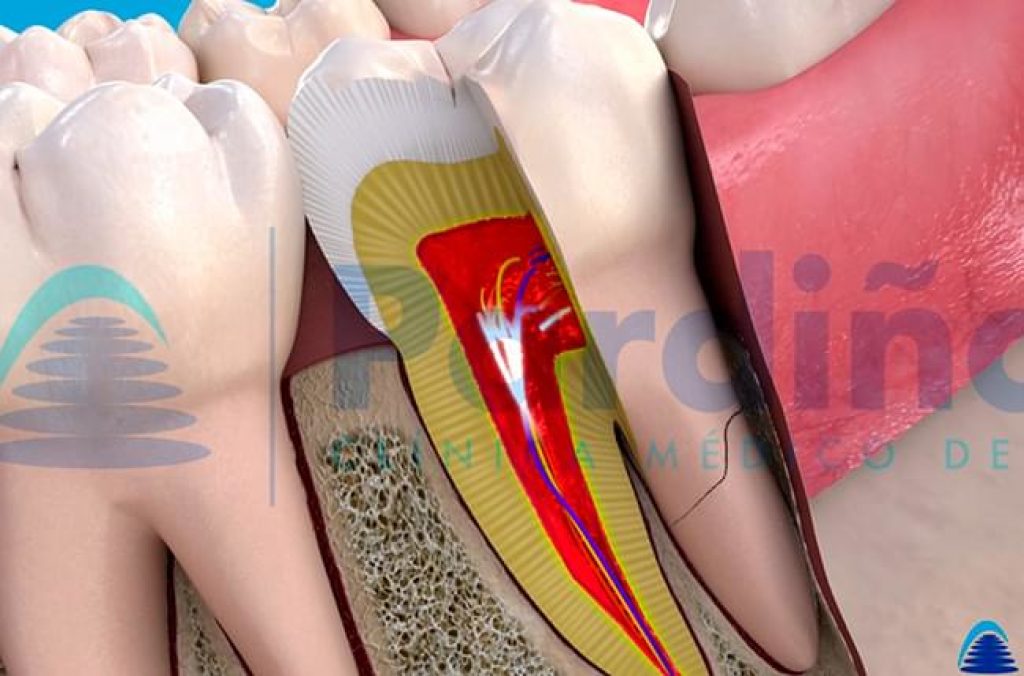
What is the treatment for cracked tooth and dental fissures?
Depending on the type of fracture or fissure, different treatments can be applied ranging from a reconstruction, a root canal treatment or even a tooth extraction.
- If a fracture affects only the crown of the tooth, it could be treated with a reconstruction and / or root canal.
- If the fracture affects the crown and root, the treatment will generally be the tooth extraction.
It is important to detect the fissures in time, since if they are not treated they can cause a fracture of the tooth.
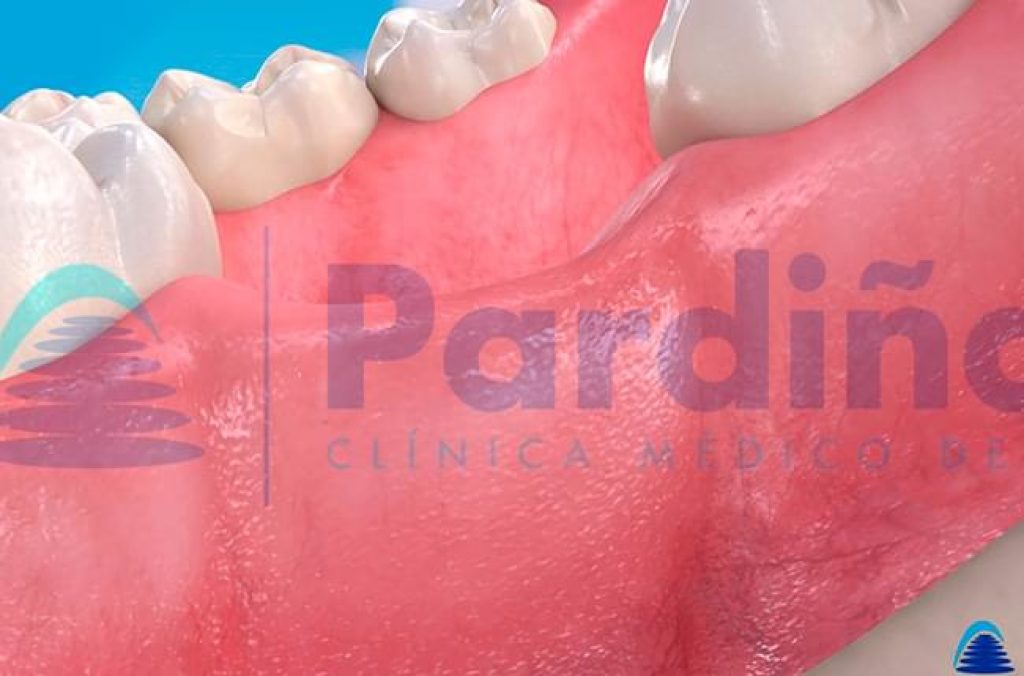
How can tooth fractures be prevented?
To prevent chipped tooth and fissures, it is advisable to follow a series of guidelines:
- If you do contact sports, the use of mouthguards is recommended.
- In the case of bruxism or teeth grinding, wearing a night splint can minimize the risk of a fracture or fissure. In the medium and long term, it would be advisable to treat the cause of bruxism.
- In any case, it is important to avoid biting hard things such as ice, corn, bones, hard food, etc.
- Also, it is advisable not to open packages or cut things with teeth. The use of scissors is essential for any of these practices.
- Visiting the dentist regularly is also a great way to keep your teeth in the best possible condition and prevent possible fractures or fissures.

Treatment of chipped tooth in A Coruña
If you live in A Coruña and have a broken tooth or think you might have a dental fissure, at Clínica Médico Dental Pardiñas we are at your disposal and we will try to provide you with the most effective solution to this or other oral problems.

